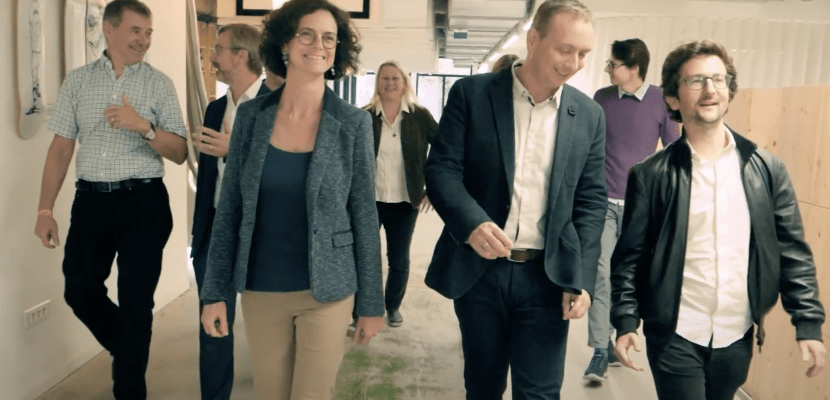
Policy Learning Platform
The Policy Learning Platform is the second action of the Interreg Europe programme. It aims to boost EU-wide policy learning and builds on good practices related to regional development policies.
About the Platform
The Platform is a space where the European policy-making community can tap into the know-how of regional policy experts and peers. It offers information on a variety of topics via thematic publications, online and onsite events, and direct communication with a team of experts.
Our community members can use for free the services we propose to policymakers looking for tailored advice on their policy challenges.
What's in it for you
As a community member, you can access all the knowledge and expertise available through the Platform. You can:
- Meet policymakers sharing similar challenges
- Learn from the experiences of your peers
- Get useful advice for your daily policy-making work and build your professional capacity
You can also actively contribute to our activities:
- Share your own policy-making experience
- Choose the topics you would like the Platform experts to cover in their publications and events
Explore the different services that the Policy Learning Platform offers below. You can also find the methodology of our peer review service alongside experiences in our latest peer review publication.
Latest Platform news
Take a look at the latest news and publications from the Platform.

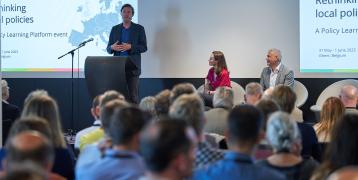
Join our thematic workshops
The Interreg Europe Policy Learning Platform is organising four workshops on various topics. It is a great opportunity to meet organisations from other European countries involved in Interreg Europe project.

Key learnings from Renewable Energy Communities projects
The Interreg Europe Policy Learning Platform organised an online discussion between projects focused on Renewable Energy Communities on 9 April 2024. Discover the key learnings.

Unaffordable housing: call for new strategies
On 5th March 2024, European Union Ministers in charge of Housing adopted the Liège declaration. They jointly identify the lack of affordable housing as a challenge with major implications on social exclusion, individual health, economic inequality, work-related mobility, access to employment and education.

Connecting Europe: A regional perspective on the Trans-European Transport Network
Europe’s cities and regions will be empowered to implement new infrastructure projects but also obliged to meet new requirements for sustainable transport planning. Explore the opportunities and challenges of The Trans-European Transport Network.

Harnessing local culture for urban regeneration - key learnings
The Interreg Europe Policy Learning Platform organised an online discussion on Harnessing Local Culture for Urban Regeneration, on Thursday 22 February 2024.

Key learnings from Navarra’s District Renovation Model
On 21 February 2024, the Policy Learning Platform organised an online discussion with a focus on Navarra’s District Renovation Model. Explore the key learnings in this article.
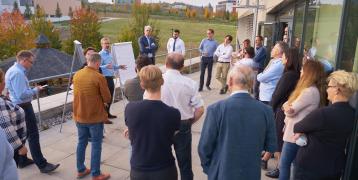
Triple transition and corporate responsibility – a new framework for businesses
Beyond the digital and green transition, the social transition needs to be taken into account to make sure everyone is included in the process towards a more sustainable and competitive economy.

Embracing the future: The EU AI Act
With the recent adoption of the EU AI Act, the European Union has taken a monumental step towards shaping the future of our continent.

Beyond mission washing: Advocating for challenge-driven policies
European regions are increasingly adopting regional mission approaches to address pressing societal challenges.

Share your wishes and shape the Platform's activities
Take the make-a-wish survey and participate in setting the agenda for the Platform's activities in the upcoming months. Let us know what you are interested in and fill out the survey by 15 January 2024.

Skills for the energy transition
Europe’s ambitious targets for sustainable energy set the pathway for significant economic growth in the sector with job creation along the value chain from manufacturing to installation and renovation, operation, and maintenance.
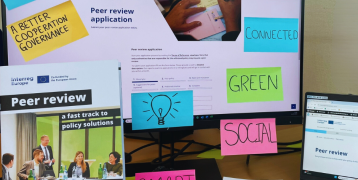
2023: a year of peer reviews
The year is coming to an end and we are reflecting on all the activities carried out over the past year. For the Policy Learning Platform, the peer review service took a main role. Read about the support we provided to regions across Europe!
The hottest summer: call to action for policymakers
While summer has traditionally been a time for taking a break and recharging batteries, this past summer has (again) been a source of anxiety for many, with raging wildfires, epic floods, a

Aligning skill shortage strategies and Cohesion Policy objectives
While flows of labour are a solution to acute skill shortages in some regions, they generate obstacles to economic development,

Unlocking circular economy solutions in Warmińsko-Mazurskie Voivodeship
In 2020, the Interreg Europe Policy Learning Platform organised an online peer review for the region of Warmińsko-Mazurskie Voivodeship, Poland. The region was seeking advice on how to accelerate the shift to a circular economy.
Upcoming Platform events
Discover upcoming events from the Platform.
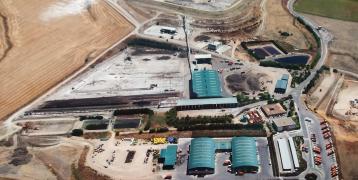
From biowaste to resource II: innovative biowaste treatment solutions
On 30 April 2024, the Policy Learning Platform is hosting the second episode of the webinar series from waste to resource: biowaste collection and treatment. Join us for the first session on innovative biowaste treatment solution from 14:00 to 15:30 CEST.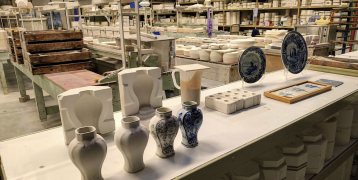
Sustainable eco-system for creative industries in Leitrim County Council
From 2 to 3 May 2024, the Policy Learning Platform is organising a peer review for the Leitrim County Council, Ireland.
Matchmaking: Water pollution monitoring and treatment
On 16 May the Policy Learning Platform is hosting a matchmaking session on water pollution monitoring and treatment. This event is by invitation only.
Strategic and Participatory Foresight
On 21 May 024, the Policy Learning Platform is hosting a webinar on Strategic and Participatory Foresight from 14:00 to 15:30 CEST.
Promoting sustainable materials and circularity in construction
On 22 May 2024, the Policy Learning Platform is pleased to invite you to a workshop on promoting sustainable materials and circularity in construction in Vienna, Austria!
Enabling the renovation wave
On 23 May 2024, the Policy Learning Platform is pleased to invite you to a workshop on enabling the renovation wave in Vienna, Austria!
Entrepreneurship in rural areas with population decline
On 29 May 2024, the Policy Learning Platform is pleased to invite you to a workshop on entrepreneurship in rural areas with population decline in Burgos, Spain!
Circular biobased construction in the Province of Zeeland
From 29 to 30 May 2024, the Policy Learning Platform is organising a peer review for the Province of Zeeland, Netherlands.
Rural Innovation Ecosystems
The Policy Learning Platform is hosting a webinar on rural innovation ecosystems. Join us online on Thursday 30 May 2024, from 10:00 until 11:30 a.m. CEST
Digital transformation of public sector services
The Policy Learning Platform will host a workshop on the digital transformation of public sector services. Let's meet in Vilnius, Lithuania on 5 June 2024.
Decarbonisation of fisheries and aquaculture in Emilia Romagna
From 5 to 6 June 2024, the Policy Learning Platform is organising a peer review for the Emilia-Romagna Region, Italy.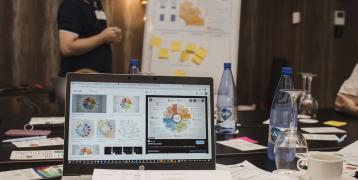
Strengthening Micro, Small and Medium-sized enterprises in ESG aspects
From 11 to 12 June 2024, the Policy Learning Platform is organising a peer review for the Hungarian Development Agency, Hungary.Regional measures to address shortages of healthcare professionals
From 3 to 4 July 2024, the Policy Learning Platform is organising a peer review for the Centre Val-de-Loire Region, France.
What our community says
Europe is facing big transitions because of climate change. Transitions are limited in time and therefore depending on fast learning and connecting with society. The Policy learning platform gives policy advisors the necessary diving board to learn even faster, stay up to speed and connect with society.
Get in contact with us
Do you have a question? Are you looking for resources on a particular topic? Get in touch with us now!
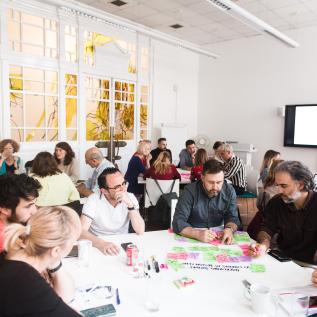
Peer review service
A peer review is an easy, time-efficient and accessible solution. Discover more about the service and apply today!